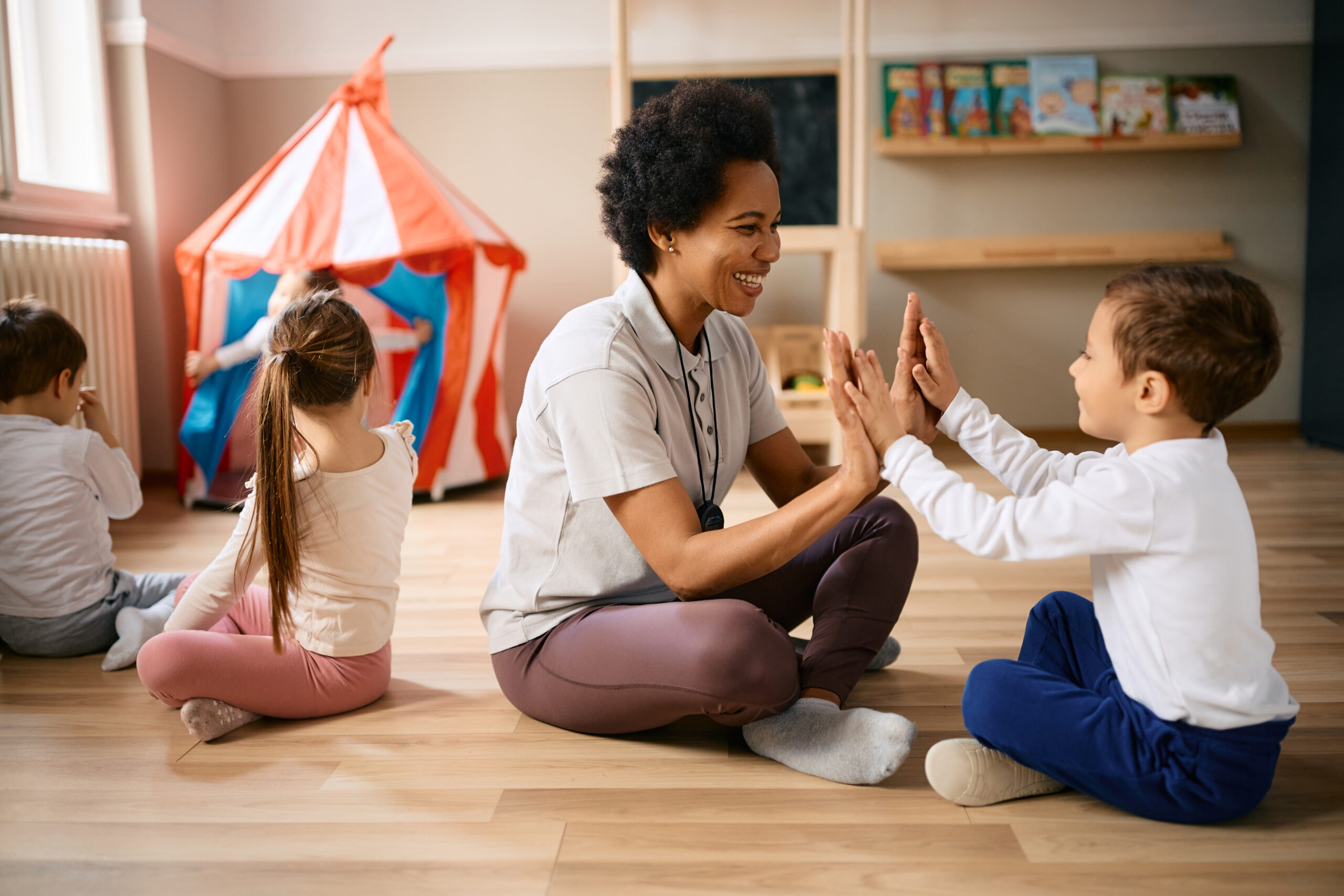By Tammy Barrows
“You know, kids don’t learn from people they don’t like.” – Rita Pierson

That can be a tough thing to hear, but I think most of us would agree. That’s why our team emphasizes the importance of relationship building and creating those caring connections. This includes the many ways adults support and interact with children individually and as children play, work, and learn with friends. These interactions support children’s development of trusting relationships and sense of security in their surroundings. [1]
Establishing connections with young children is so important, and we’d say especially important when they are babies, toddlers, or preschoolers! Here are some points to consider as you work on that relationship building.
- Be intentional about spending 1:1 time with individual children to get to know them and learn more about who they are.
- Create daily rituals that create a bond between you and the child. A special greeting in the morning and a special good-bye at the end of the day (e.g., a song or a handshake).
- Don’t be afraid to have fun, be silly, and be yourself. You want the children to get to know you as well. Share some stories about yourself with them!
- Be consistent! Kids need to know they are safe, what is expected of them, etc. They thrive on predictability.
- Be honest with children. Building a trusting relationship is crucial as we begin to connect with children. Remember: You are a role model for them.
- Acknowledge when you have made a mistake. Children need to see that adults make mistakes too, and that it’s okay for them to make a mistake.
- Be a good listener. We want children to know that how they feel and whatever they might be going through is okay and valid. When we don’t listen to children, they stop talking to us.
- And of course, you can never, ever talk too much about feelings! Talk about your feelings, their feelings, and even about the feelings of their peers.
Research has shown that teachers’ positive interactions with children can help build positive emotions and secure relationships. In early childhood settings, each moment that teachers and children interact with one another is an opportunity to develop positive relationships. [2]
Tammy has been in the early childhood field for over 30 years, serving first as a preschool teacher and then as a preschool education director. She now serves as Professional Development Manager for the Devereux Center for Resilient Children.
- Cairone, Karen, and Mary Mackrain. Promoting Resilience in Preschoolers: A Strategy Guide for Early Childhood Professionals. 2nd ed., Kaplan Early Learning Company, 2012.
- Cairone, Karen, and Mary Mackrain. Promoting Resilience in Preschoolers: A Strategy Guide for Early Childhood Professionals. 2nd ed., Kaplan Early Learning Company, 2012.


